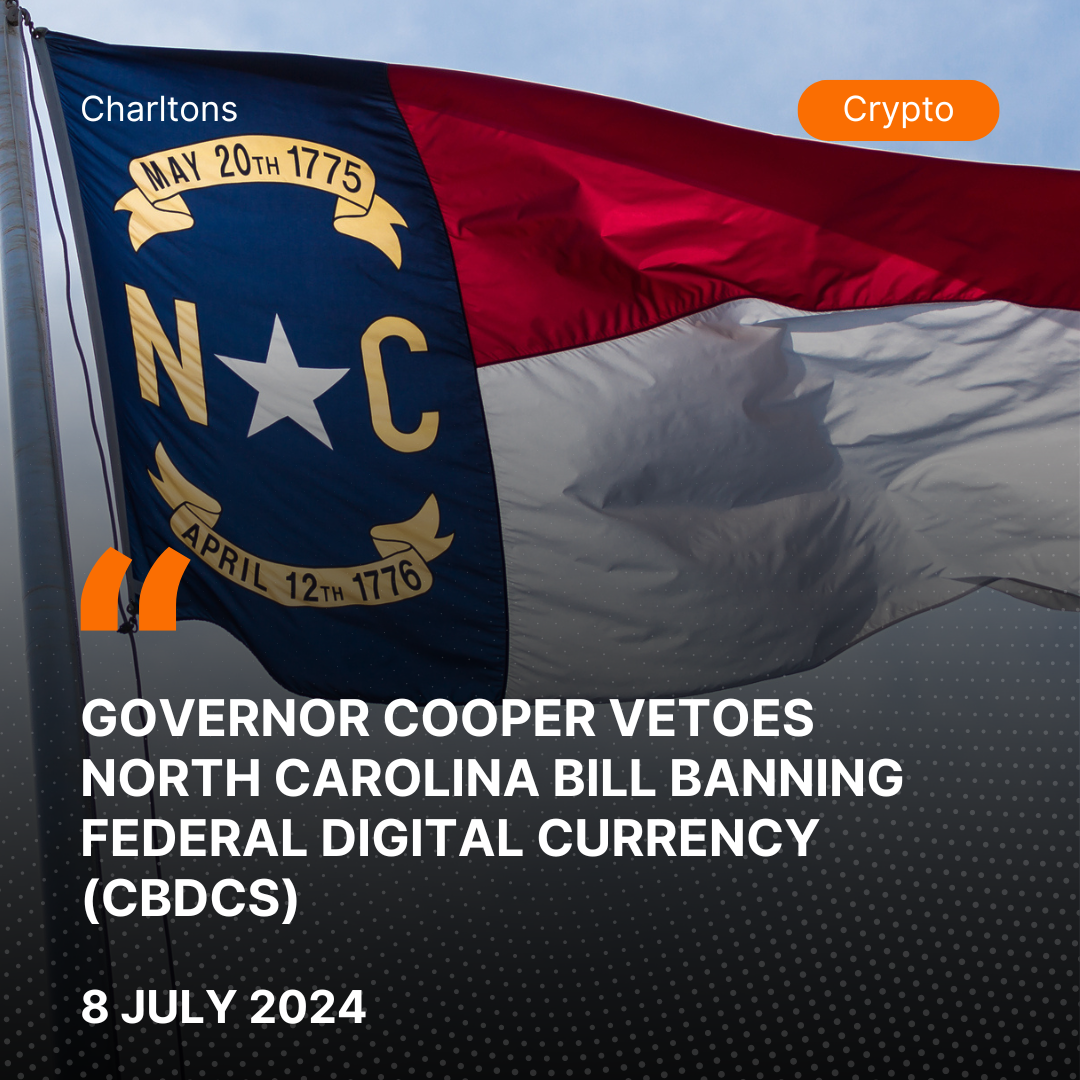
On 5 June, 2024, North Carolina Governor Roy Cooper vetoed a bill that would have prohibited the state from implementing a US Federal Reserve-issued central bank digital currency (CBDC). Despite receiving near-unanimous support in the state’s House of Representatives and Senate, Cooper deemed House Bill 690 as “premature, vague, and reactionary.”
In a statement on June 5, Cooper explained his decision, emphasizing that ongoing federal efforts aim to ensure appropriate standards and safeguards for consumers, investors, and businesses using digital assets. “North Carolina should wait to see how they work before taking action,” he added.
The bill, which passed the House with a 109-4 vote and the Senate with a 39-5 vote in late June, aimed to ban the state from receiving payments in CBDC and participating in any Federal Reserve CBDC testing. Given the overwhelming legislative support, North Carolina lawmakers could potentially override Cooper’s veto with a three-fifths majority in both chambers.
Cooper’s veto has sparked criticism, particularly from proponents of the bill who view the decision as politically motivated. Blockware Solutions head analyst and North Carolina native Mitchell Askew expressed disappointment, stating, “The veto from Governor Cooper was not representative of the desires of North Carolinians.” Askew suggested that Cooper’s decision was influenced by his opposition to political rival Mark Robinson, a proponent of the bill.
Dan Spuller, head of industry affairs at the Blockchain Association, also criticized the veto, describing it as a missed opportunity for North Carolina to signal its opposition to a federally controlled digital currency. Spuller stressed that digital asset policies should reflect values of privacy, individual sovereignty, and free market competitiveness.
Federal Reserve Chair Jerome Powell has previously stated that the US is “nowhere near recommending or adopting a central bank digital currency in any form.” This perspective aligns with Cooper’s rationale that the state should await further developments at the federal level before making significant legislative decisions.
The impact of Cooper’s veto extends beyond North Carolina. It reflects a broader debate on the future of digital currencies and state versus federal control. The decision highlights the tension between rapid technological adoption and the cautious approach of waiting for comprehensive regulatory frameworks to be established.
Notably, North Carolina is not alone in its scrutiny of CBDCs. Florida has already passed legislation to ban the use of CBDCs within the state, citing concerns over state-controlled surveillance. This regional pushback against federal digital currency initiatives signals a growing trend among states to assert their positions on digital financial innovation and its implications for privacy and economic autonomy.
As the debate over CBDCs continues, the actions of state governments like North Carolina will play a crucial role in shaping the national conversation. Governor Cooper’s veto, while controversial, underscores the complexity and importance of ensuring that any adoption of digital currency is carefully considered and regulated to protect the interests of all stakeholders.





